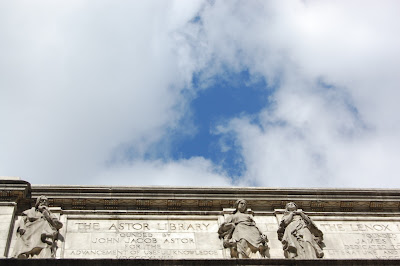 From Wikipedia's website:
From Wikipedia's website:In the late nineteenth century, New York City had two reference libraries open to the public: the Astor Library, founded by a $400,000 bequest of John Jacob Astor (1763–1848), which had opened in 1849, and the Lenox Library, founded by James Lenox (1800–1880), a book collector, which stood on the Fifth Avenue site now occupied by the Frick Collection.
In 1886, Samuel J. Tilden (1814–1886) made a bequest of about $2.4 million to establish a library in New York City.
John Bigelow (1817–1911), a New York attorney, was a trustee of the Tilden will, and formulated a plan to combine the resources of the financially-strapped Astor and Lenox libraries with the Tilden bequest to form "The New York Public Library, Astor, Lenox and Tilden Foundations". This entity came into being as a private foundation on May 23, 1895.
The library consolidated with The New York Free Circulating Library in February, 1901, and Andrew Carnegie donated $5.2 million to construct branch libraries, with the proviso that the City of New York fund their maintenance and operations. The New York Public Library is thus a partnership of city government with private philanthropy.



No comments:
Post a Comment